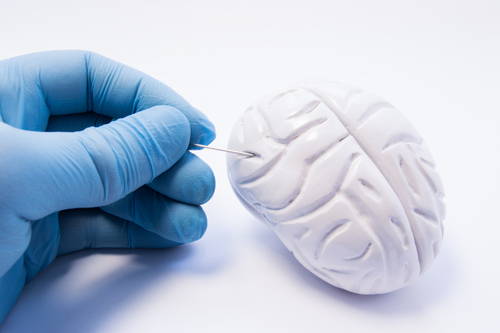AxoSim Licenses Mini-Brain Technology to Pursue Therapies for Alzheimer’s, Other Disorders

AxoSim has acquired exclusive rights to lab-grown brain miniatures, coined “Mini-Brain,” a technology developed at Johns Hopkins University that uses stem cells to create models of the human brain in a dish. The technique may help speed therapy discovery for many neurological diseases, including Alzheimer’s disease.
“Acquiring rights to the intellectual property underlying the Mini-Brain technology is a major step forward in our drive to transform neurology drug research,” Lowry Curley, PhD, CEO of AxoSim, said in a press release.
“The Mini-Brain technology complements our innovative Nerve-on-a-Chip platform and accelerates our strategy of providing the broadest and most scientifically robust neuroscience models to our growing roster of biopharmaceutical partners,” he said.
This organoid-based technology was developed by Thomas Hartung, MD, Johns Hopkins Bloomberg School, and collaborators to create an alternative to animal testing.
The Mini-Brain platform uses human adult cells (most often skin cells) that are grown and reprogramed in the lab to return to an undifferentiated, stem cell-like state. Using specific cocktails of chemicals, these pluripotent stem cells are then induced to grow into tiny organoids that mimic many of the features of human brains.
Similar to the adult human brain, these Mini-Brains contain different types of neurons and support cells, as well as nerve cells’ protective myelin layer. Its particular biological features make the Mini-Brains a more accurate and reliable experimental model to study human neurological diseases that can overcome many of the limitations of currently available animal models.
The stem cells necessary to generate the Mini-Brains can be collected from healthy volunteers, or from patients who have specific disorders or genetic traits, which makes them a versatile platform to study a broad range of human conditions.
“AxoSim now provides a suite of models across the central nervous system and peripheral nervous system and has the only two commercially available platforms with 3D human-relevant myelination,” said Benjamin Cappiello, chief business officer of AxoSim.
“Our world-class team strives to add significant value as an extension of preclinical discovery and toxicology at our biopharmaceutical partners, providing early human data that significantly accelerates research programs while substantially reducing costs,” he said.
Hartung, who is the director of the Center for Alternatives to Animal Testing at the Johns Hopkins Bloomberg School of Public Health, is going to serve as a consulting vice president of scientific affairs for AxoSim.
The company also announced that it has acquired all the assets of Organome, a company founded by Hartung to commercialize the Mini-Brain technology and other functional organ equivalents.
“Dr. Hartung’s experience in applying advanced tissue engineering, stem cell and high content data technologies to empower early stage neuroscience and toxicology research will be very valuable as we continue to refine the Mini-Brain technology,” Curley said.






